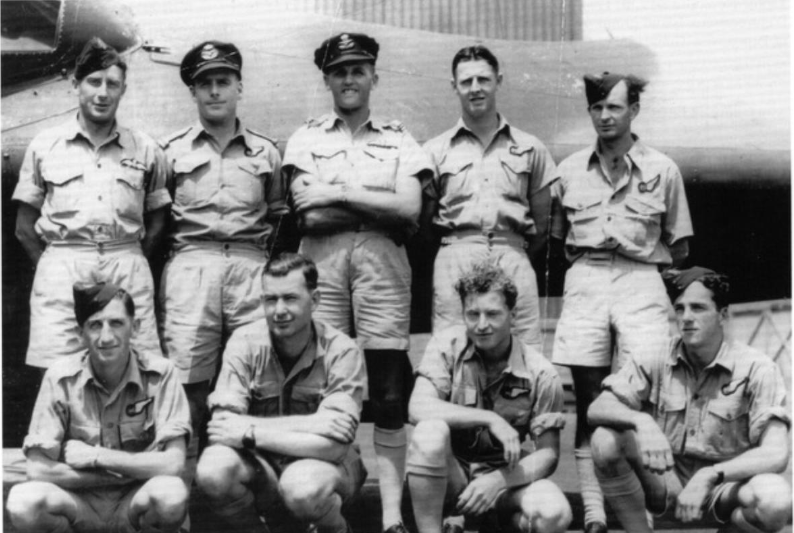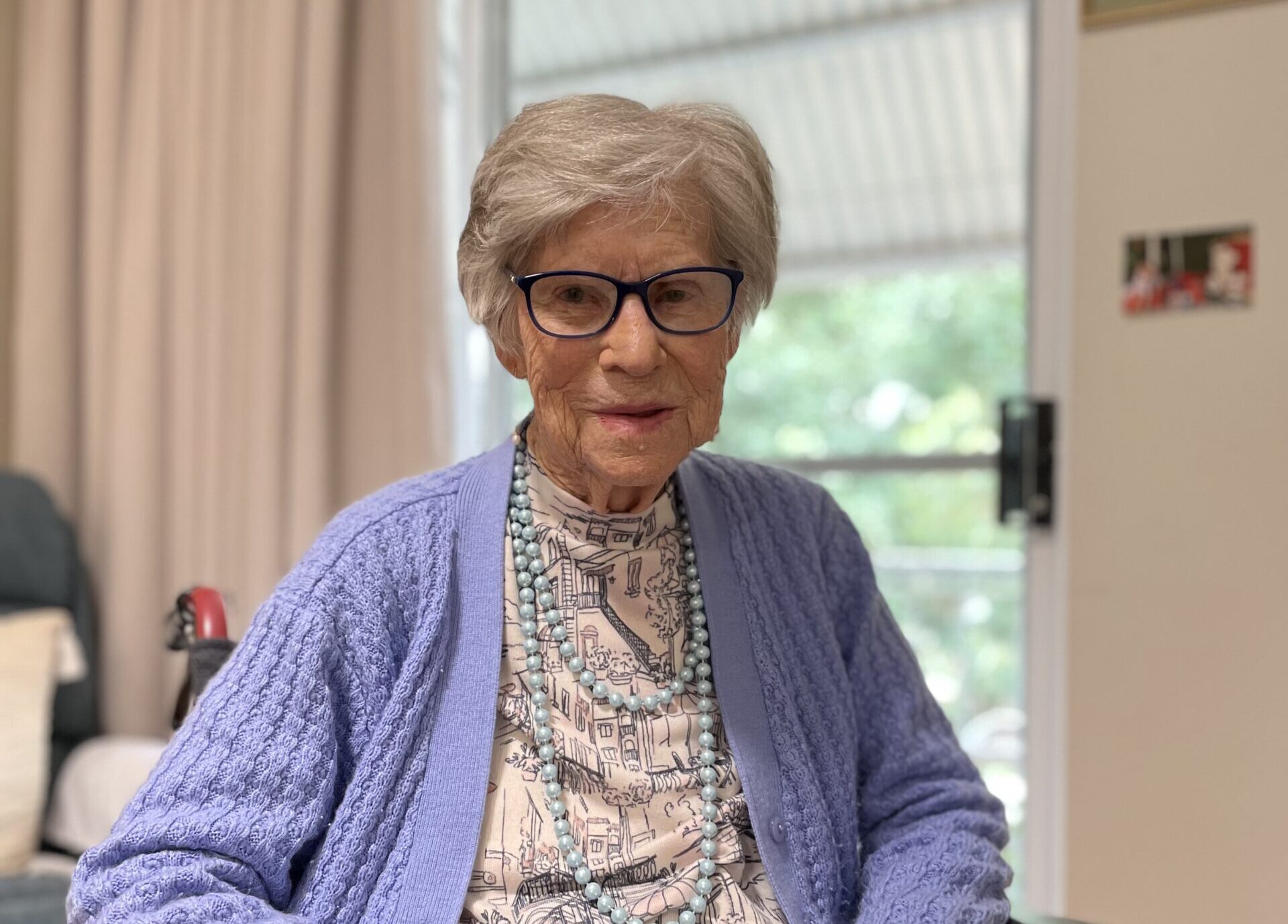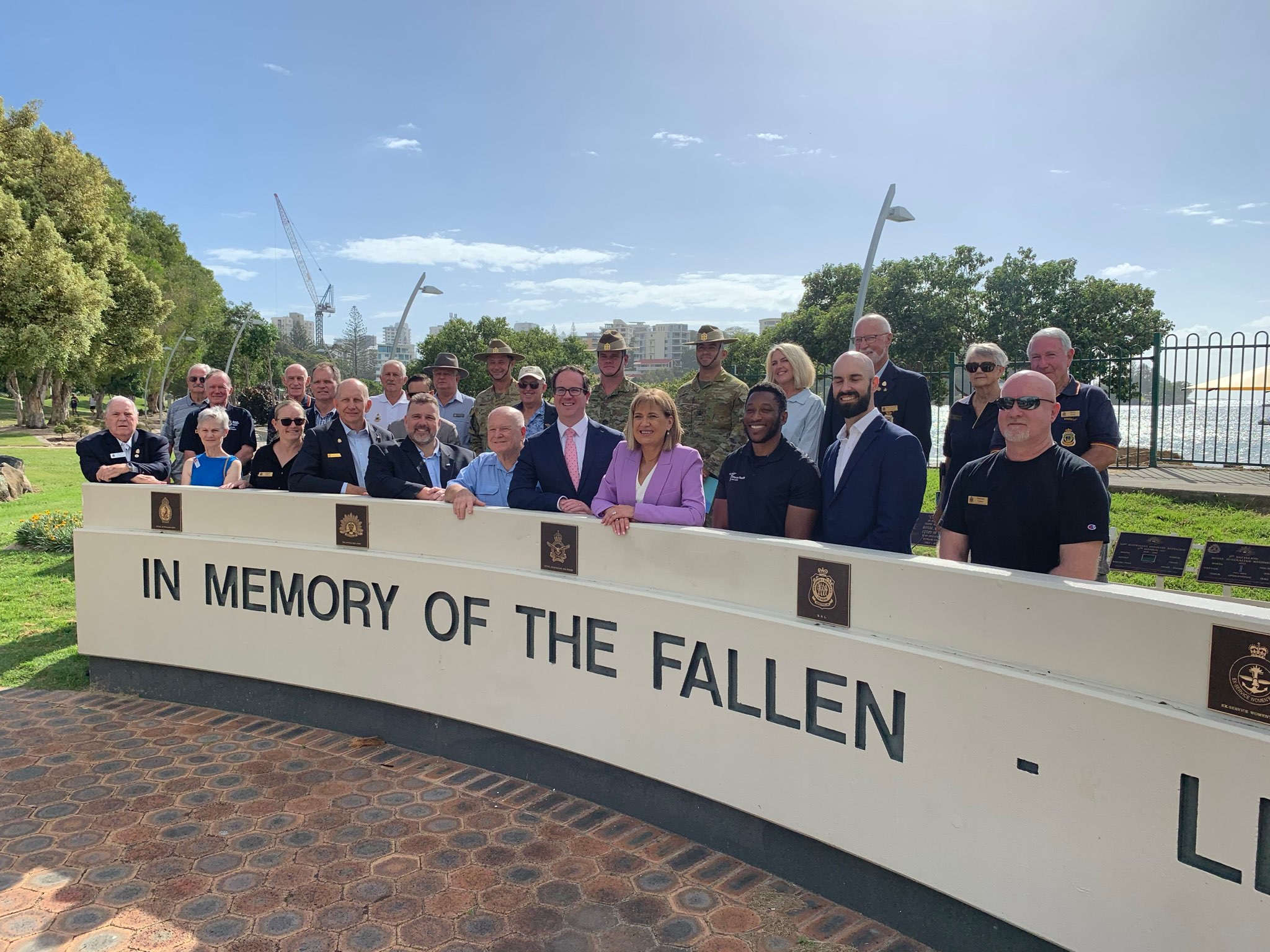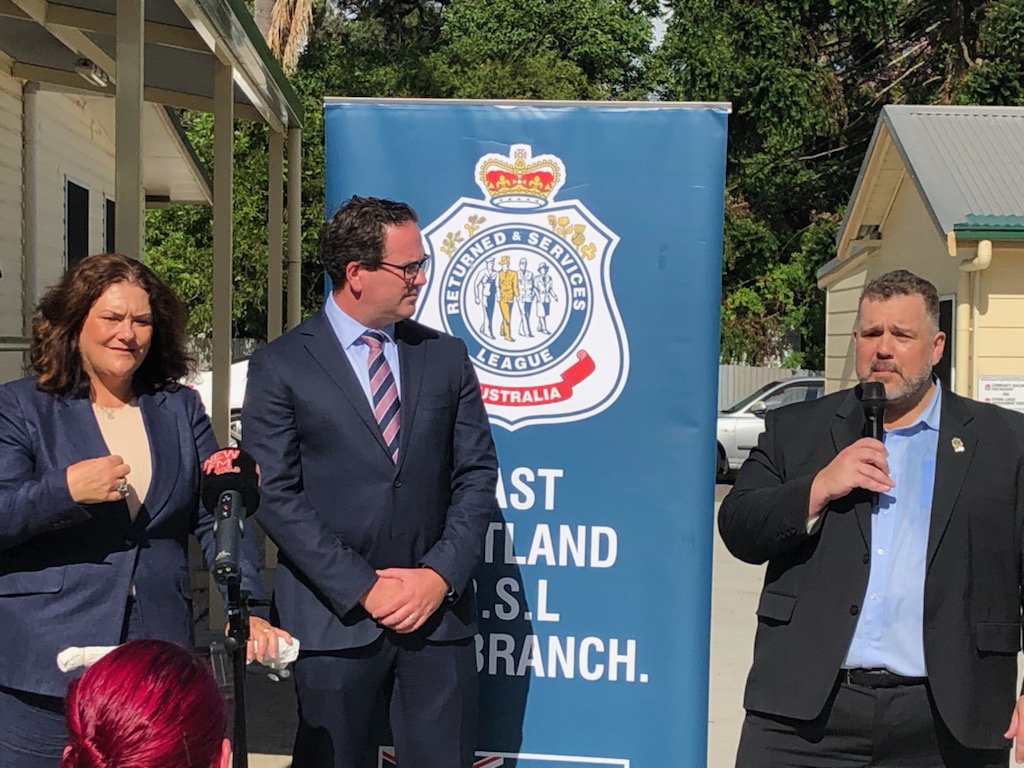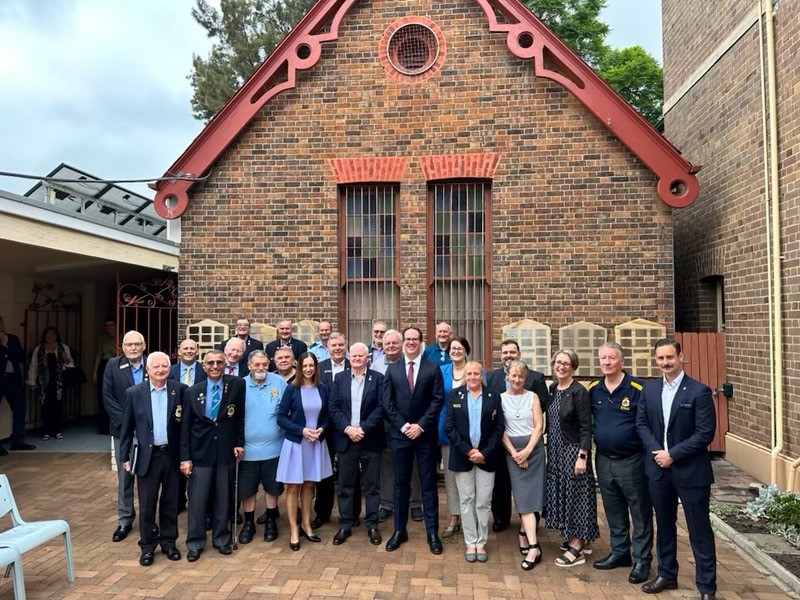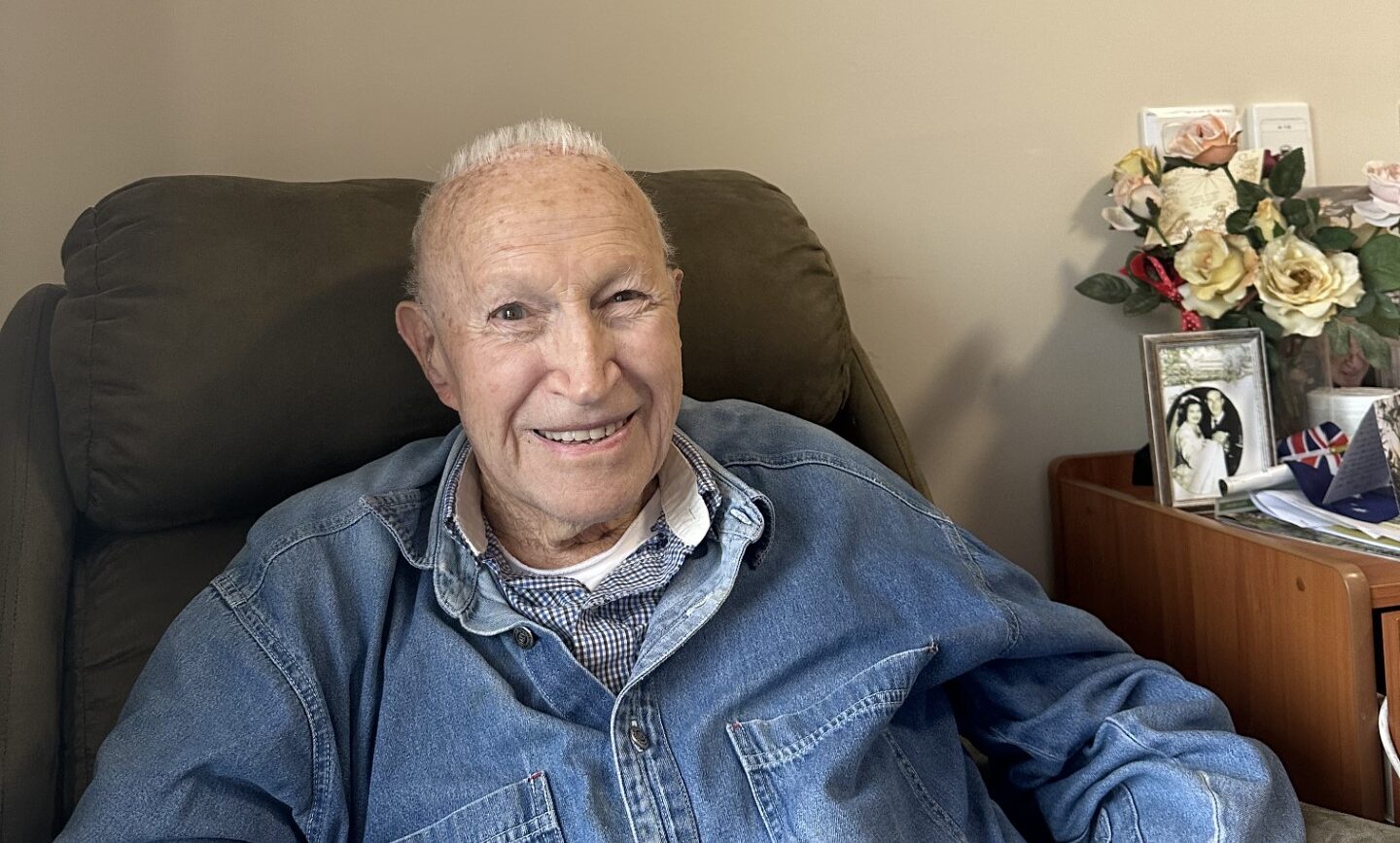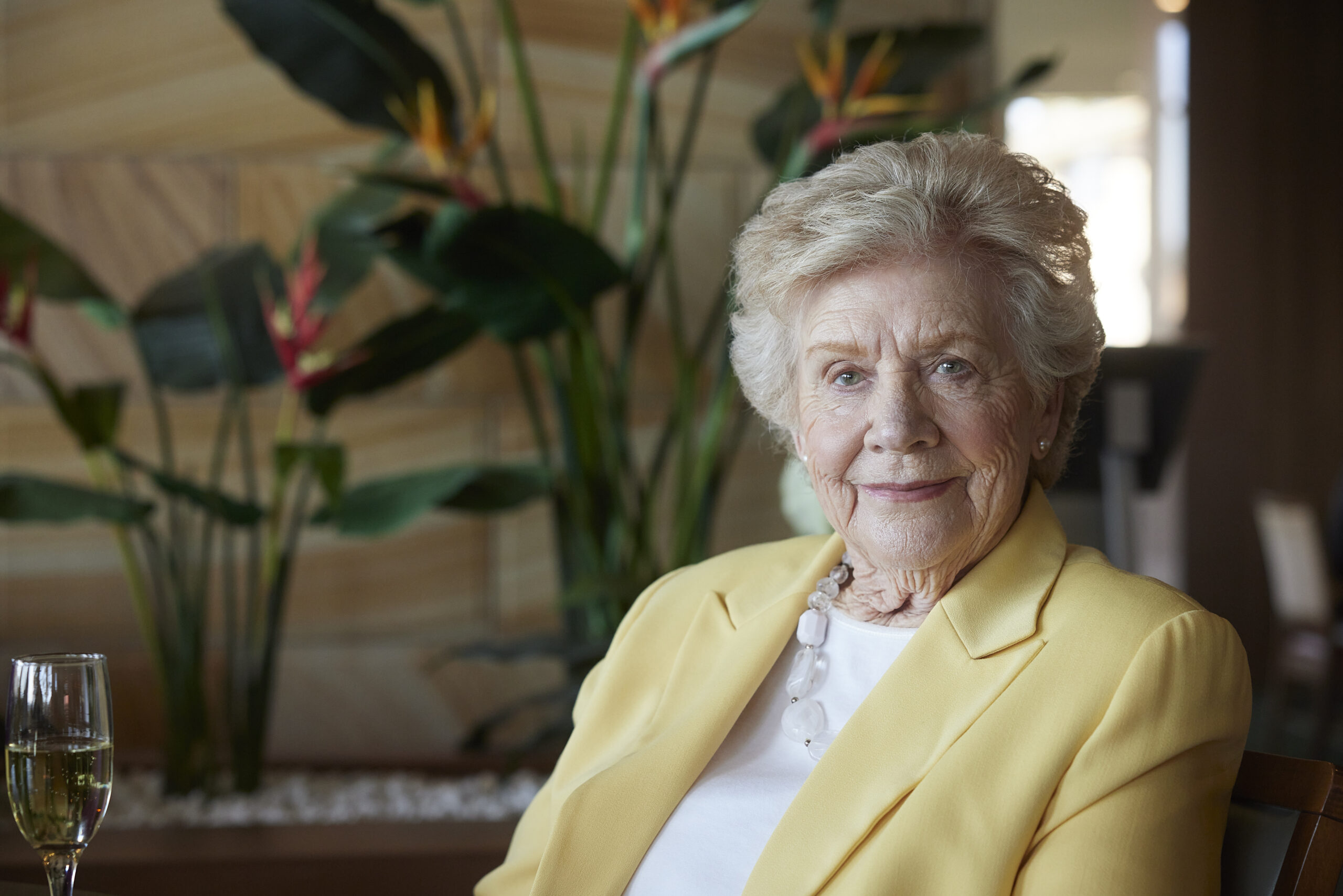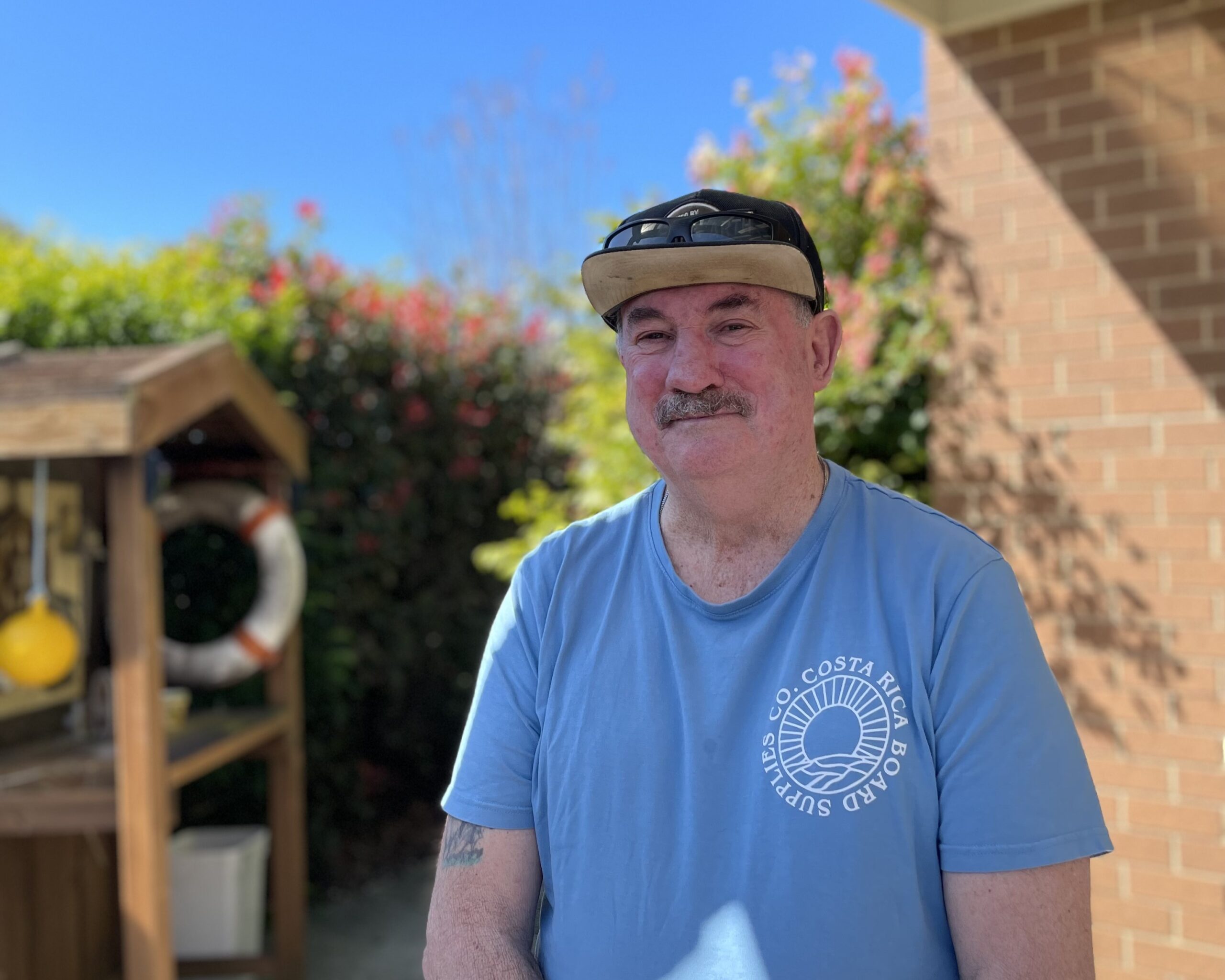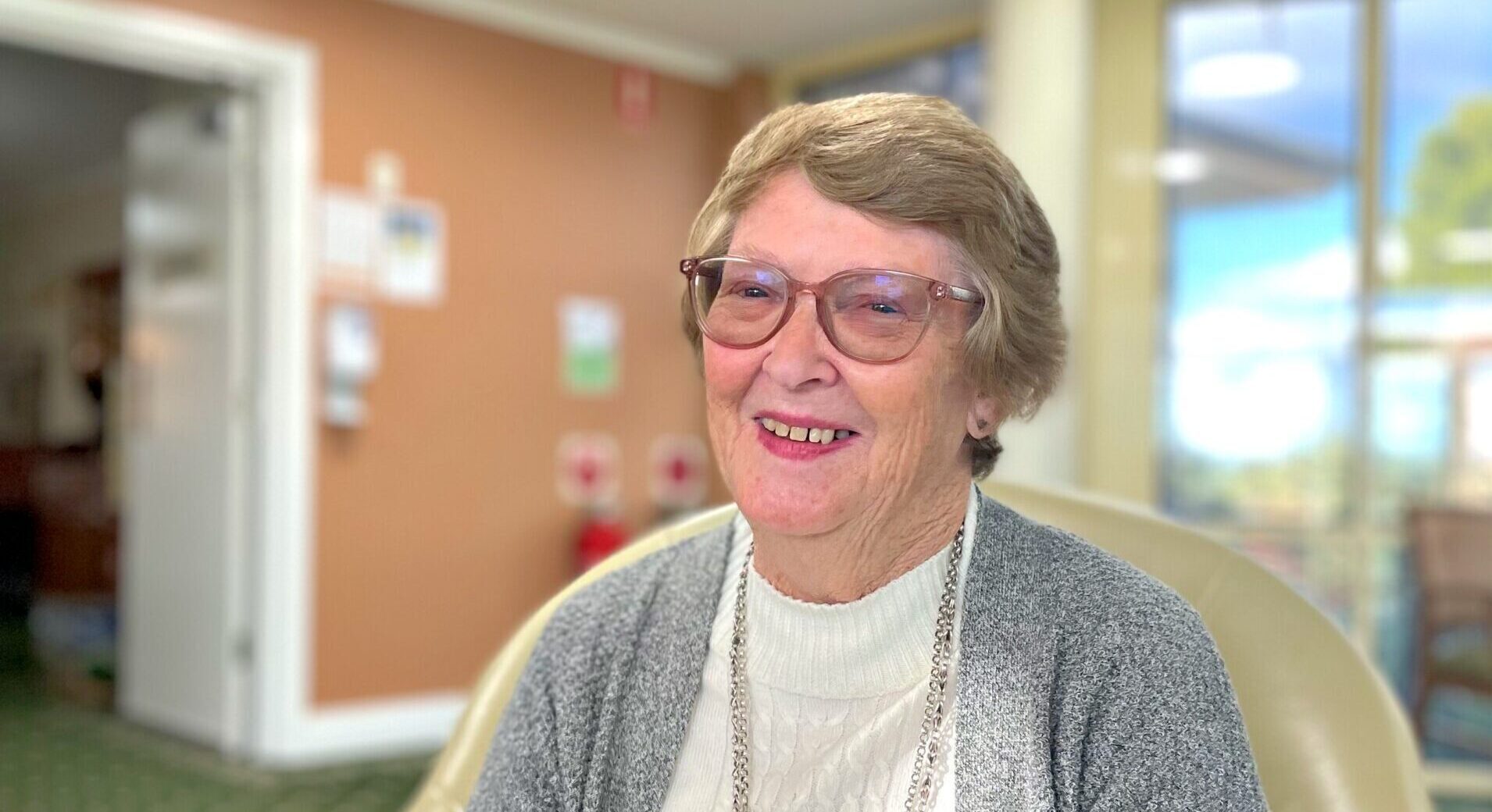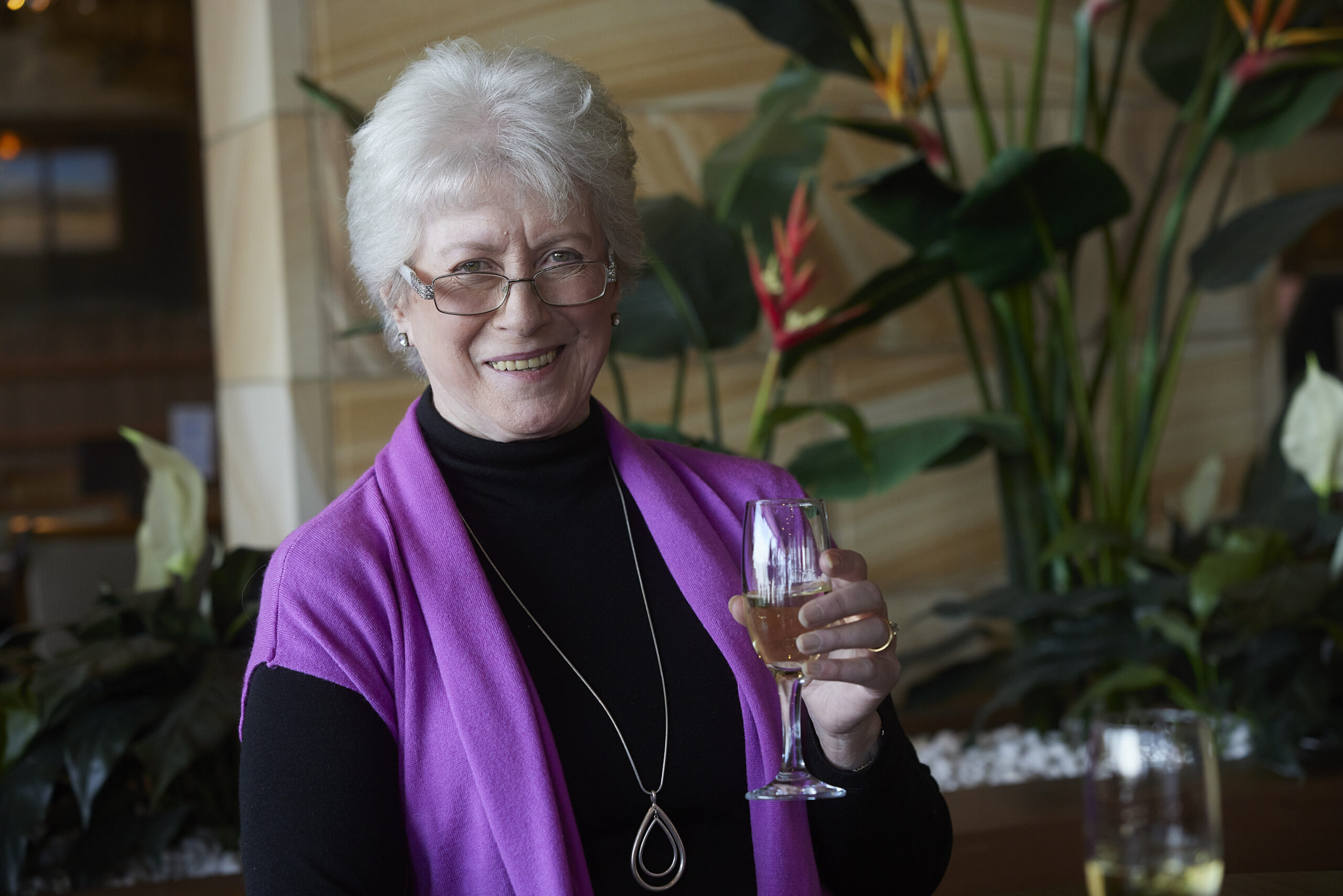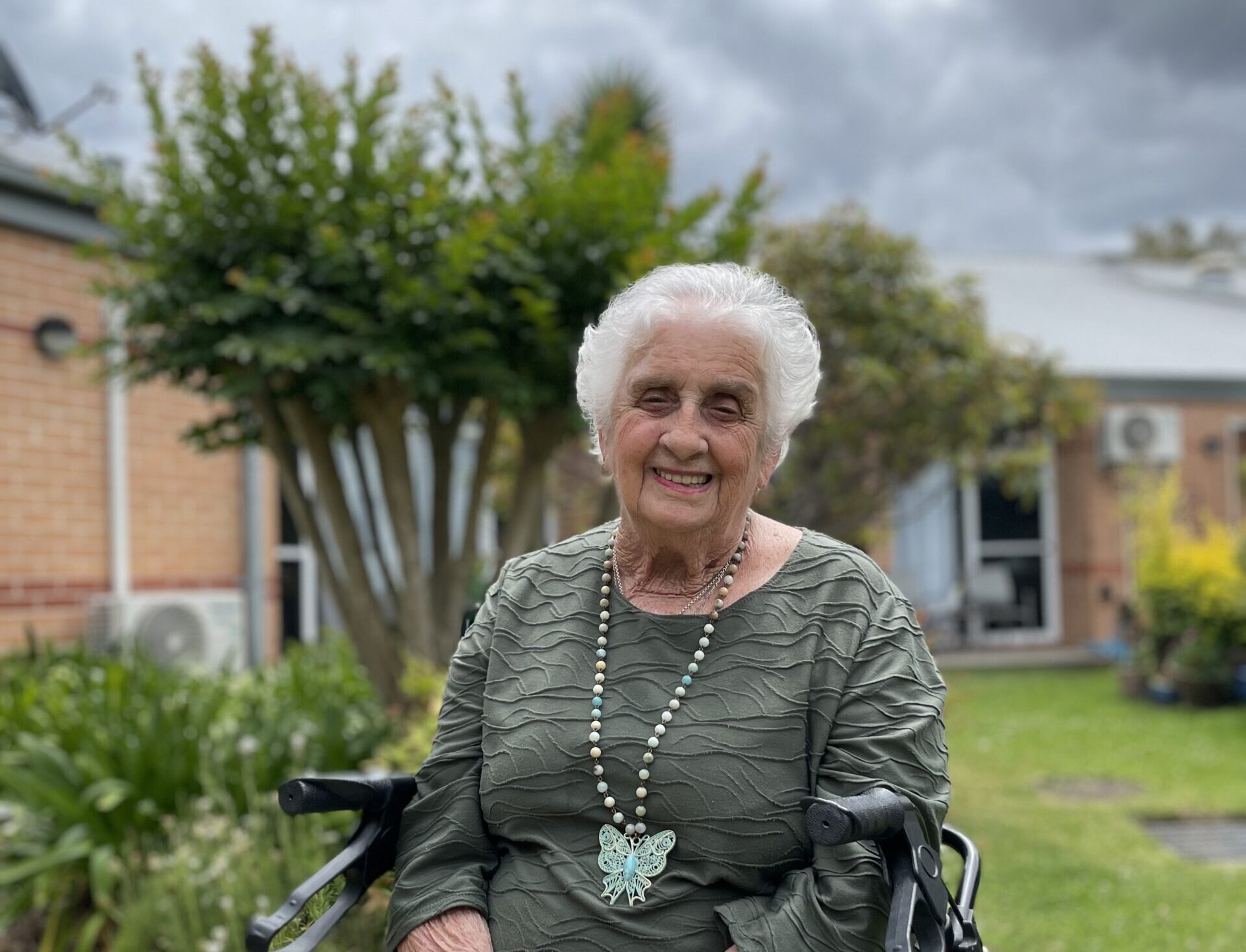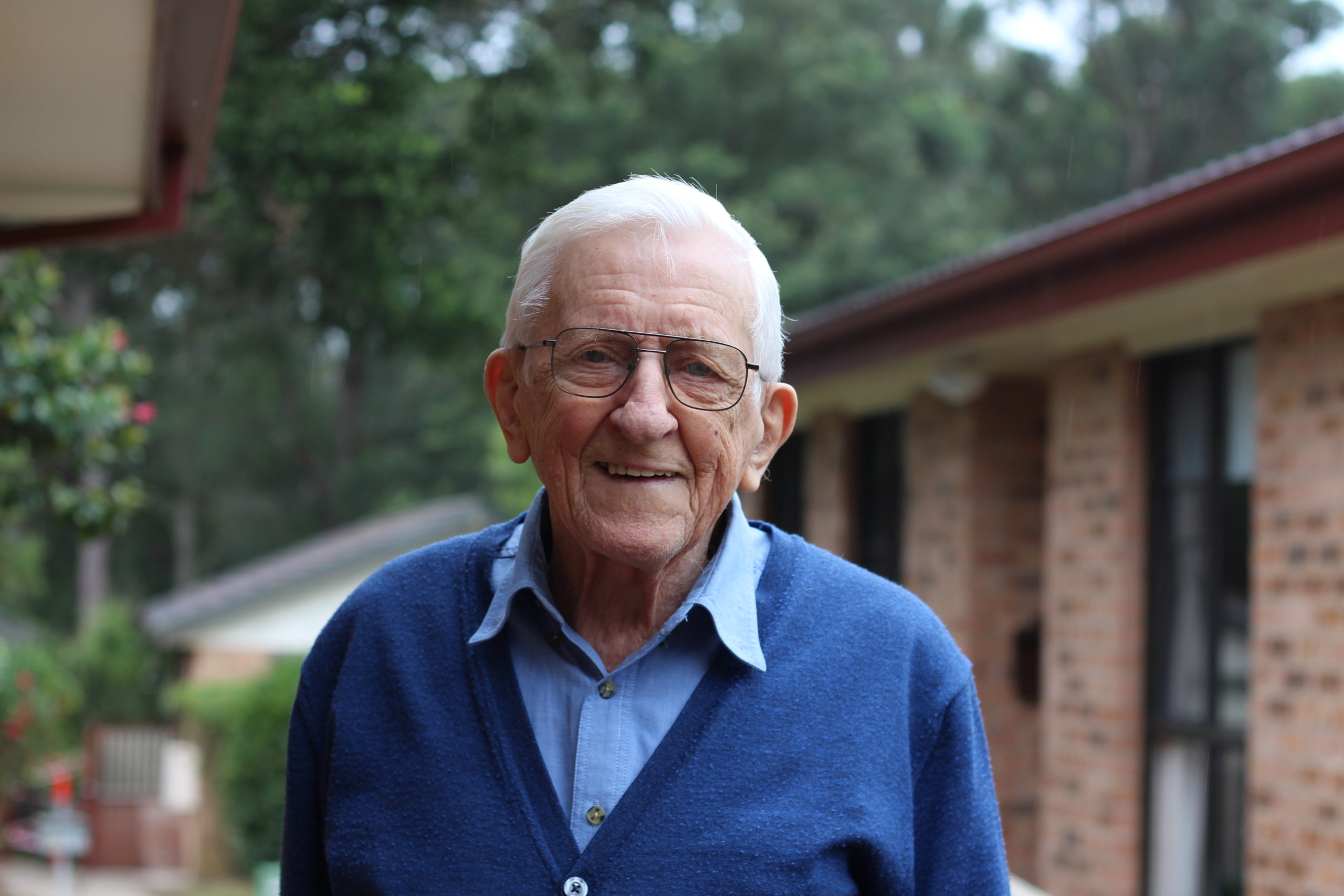
Richard (Dick) Udy
Dick Udy couldn’t wait to enlist when war was declared in 1939. His sense of adventure was eventually fulfilled as a wireless operator onboard the “Black Cats” Catalina flying boats, mining and bombing Japanese strongholds and harbours under the cover of darkness, at very low altitude. Here he tells his story…
In 1939 I was not quite 18 but like most young boys at the time I was keen to join up, so I rode my pushbike all the way from Maitland, where we were living, to Newcastle to find the right place to enlist. I wanted to go into the Air Force, I thought it would be far more exciting than marching around in the Army!
I was eventually called up, heading to Bradfield Park in Lindfield, Sydney. I trained to be a wireless operator and spent 6 months undertaking elementary training out at Parkes, followed by a month of gunnery training in South Australia. We were then sent to Rathmines, near Newcastle, to practice all the dangerous and normal things on the Catalinas – the flying boats that we were going to fly in the Pacific.
When we arrived at Rathmines a Corporal came along and grabbed a few of us saying, “you’re down for a funeral duty tomorrow”. A Catalina practicing a rough water landing had crashed just outside Newcastle Harbour that very day and all the men had died. We just accepted it, that was life. So we went out the same day and had the funeral service, and that was the beginning of Catalina training.
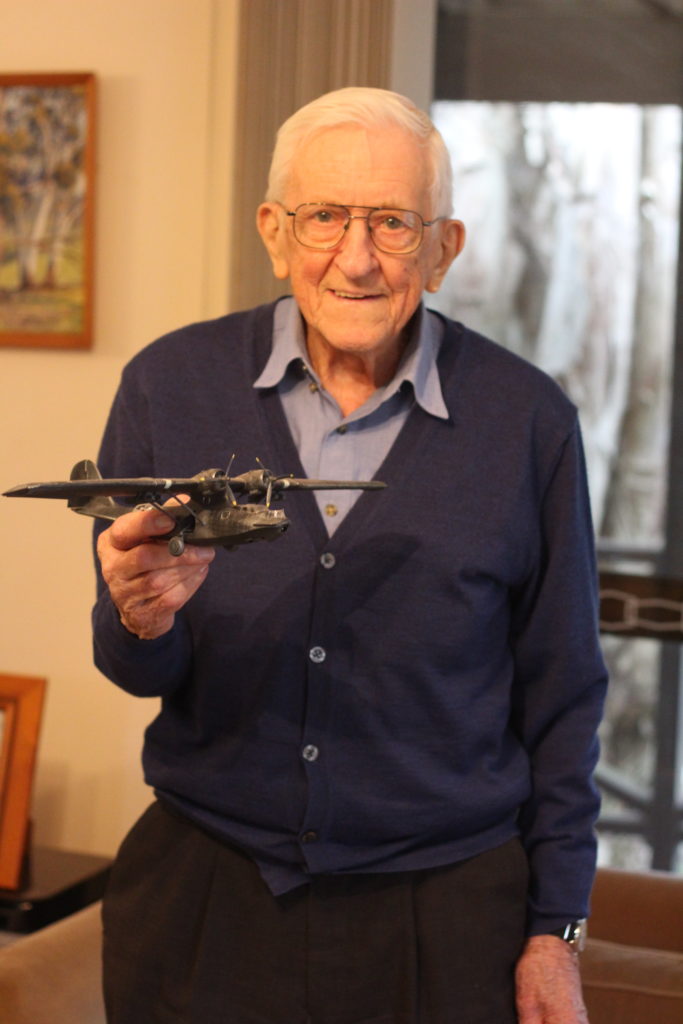
From Rathmines we were sent north to Cairns, then the Gulf of Carpentaria, then Darwin after it was bombed. Darwin remained our base for the rest of the war.
The skipper of my crew was Reg Marr. He was careful, he was brave, he was athletic, he had all the qualities you could imagine a person needed to be a good skipper. We had two pilots and sometimes a third who was learning. The navigator was the hardest worked, he was on his own and he was very important. On a long flight he’d be rushing up and down, getting star fixes as to where we were. If he made a mistake of a degree or so, you’re going to finish up a long, long way off. There were two wireless operators. We all got on tremendously well, it was very fortunate. You spend hours and hours together with your crew, doing things and facing unusual circumstances.
As a wireless operator silence was the rule, but the chatter in your ear from base was vital. We had very little information on the sea areas north of Australia, all of that area was completely unmapped, some planes even flew into mountains without knowing they were there. We were always flying low, that was our biggest danger, especially at night. We flew the Black Cats, painted completely black so at night we were invisible. We didn’t have any lights on in the plane so as to remain as hidden as possible.
We were in 43 Squadron, which was a good squadron. In the early days it was high level, 10,000 – 12,000 feet bombing of Japanese outposts. They were villages and I didn’t like that. That was the one time I felt uncomfortable. It wasn’t long after that we started deep sea mining. This meant that we would carry two 1,000 pound mines, one under each wing, for hours on end. We would fly from Darwin to Broome, load up the bombs and head up from there. They were all long journeys, whatever the location. You got used to that, as long as people weren’t trying to shoot you out of the sky.
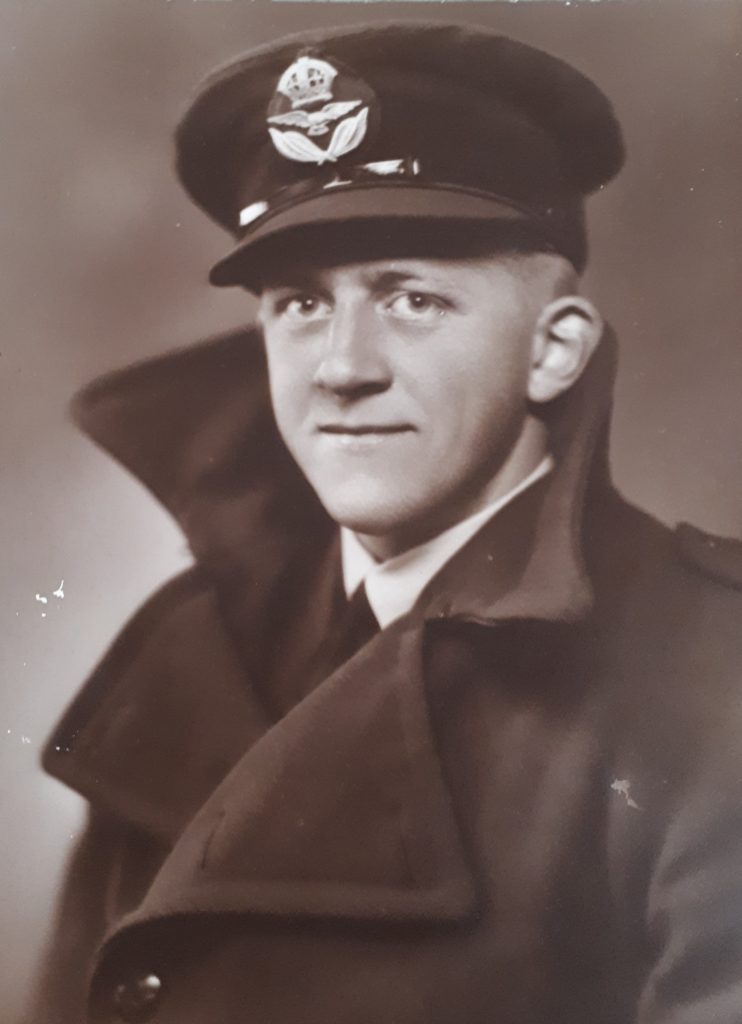
The mining meant the enemy couldn’t take their vessels through a canal or channel in the harbour, effectively stopping their supplies, their soldiers and their food. By the end of the war, their soldiers had completely run out of supplies, including food.
I had a “she’ll be right, we can do this” attitude which kept me going right through the war, and we were kept busy. There was no time to sit down and say “another bunch has gone”. But I lost my best friend, he was blown out of the sky at Balikpapan. He had been asked to go as a special pilot on this plane and come in at 20 feet, just above the trees. We were mining the harbours and the channels and that morning one of the officers came to him and said “Look we need you to go with this young crew today”. They were very, very young, they’d only just arrived in the squadron about a fortnight and so he quite willingly went as second pilot. We had done our tour and flown all the way around when one of the boys in my little cabin said, “flames in the harbour, skipper” and that was my best friend. So there are times like that, I couldn’t tell at that point who it was, but it turned out to be him.
I’ve written a poem about it, called Flames in the Water.
It’s an Air Force superstition, don’t get yourself transferred from one crew to another if you can possibly handle it, and for him it turned out to be true…
We also conducted rescues of other crews who came to grief, and we gained a bit of notoriety for one rescue in particular. We’d been out mining all night and came back on a Friday morning. There was hardly anybody in Darwin Harbour and in came the message, one of our Beaufighter planes had crashed on Cartier Island, a tiny sand spit that is barely anything. At high tide it’d be covered. There was nobody else to go, we were all dog tired, but the skipper got in as much petrol as he could. Petrol was the key with the timing and it was about 500 miles west of Australia. We got there just on dusk and you could see this little wreck of a plane and 2 figures wandering around. We had to land. The most difficult thing in Catalinas is landing in rough water, but Reg was a remarkable pilot and he came around on the lee side. He did a stall landing, where you come down as low as you can, turn the engines off and absolutely drop in, which in some cases pops the rivets, it’s only terribly thin metal. A few of us got into a little dingy and rode to these guys and we pulled them in towards the plane. The moment they were on board Reg knew he had to get off because the engines were idling the entire time, you wouldn’t dare turn them off. It was nightfall but we could just make out the horizon. We set our plane for home and all the dials were showing empty that should have been full. We flew homeward, praying that we’d make it with the scant amount of petrol left in the tanks. Being wartime it was blackout on the Darwin coastline and as we came in over the edge of the coast towards Darwin, one engine stopped, which was a bit of a shock. It was out of petrol. He managed to fly down onto the harbour where it was reasonably safe and the other engine promptly spluttered to a stop. Five minutes more out of a whole day and we could not have made it.
Reg received a DFC and the rest of us were all mentioned in dispatches, it was really a rather remarkable rescue.
When we heard that the war had ended there was intense relief, tremendous relief that we would all get home, all being well. I came back to Sydney and took up a scholarship offer being given to ex-servicemen. I trained to become a teacher. Teaching was good fun. I have a few battle stories from those years as well…
As told to Helen Johnston
Blog Posts
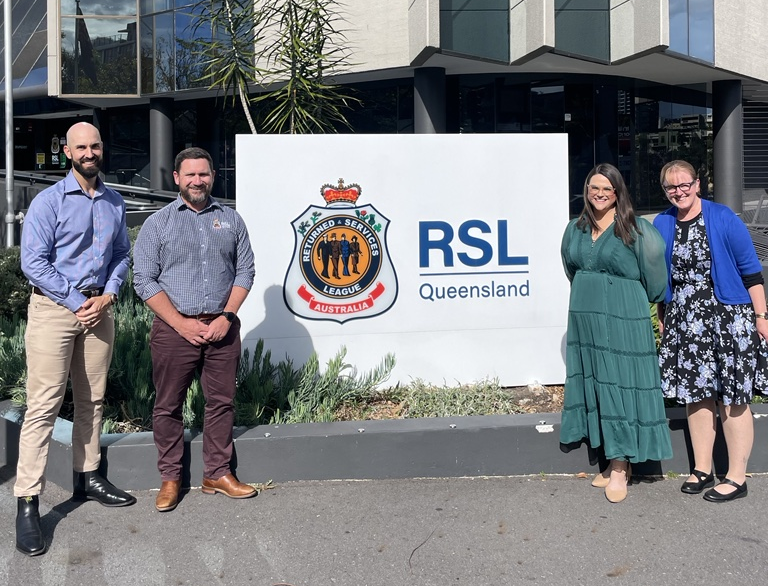
05 Feb 2024
NSW veteran employment prospects enhanced as RSL LifeCare partners with RSL Queensland
To further enhance the employment prospects of veterans and their partners, RSL LifeCare Veteran Services has today announced its...
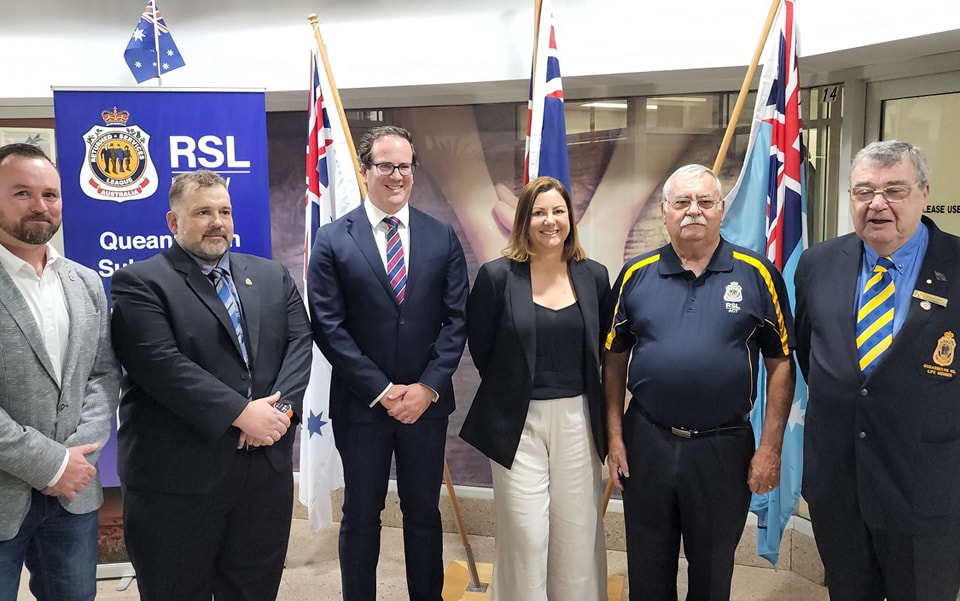
23 Jan 2024
RSL LifeCare receives $5.445 million in funding to deliver a new Veteran Wellbeing Hub in Queanbeyan
RSL LifeCare, in partnership with RSL NSW, will receive a $5.445 million grant from the Federal Government to develop...
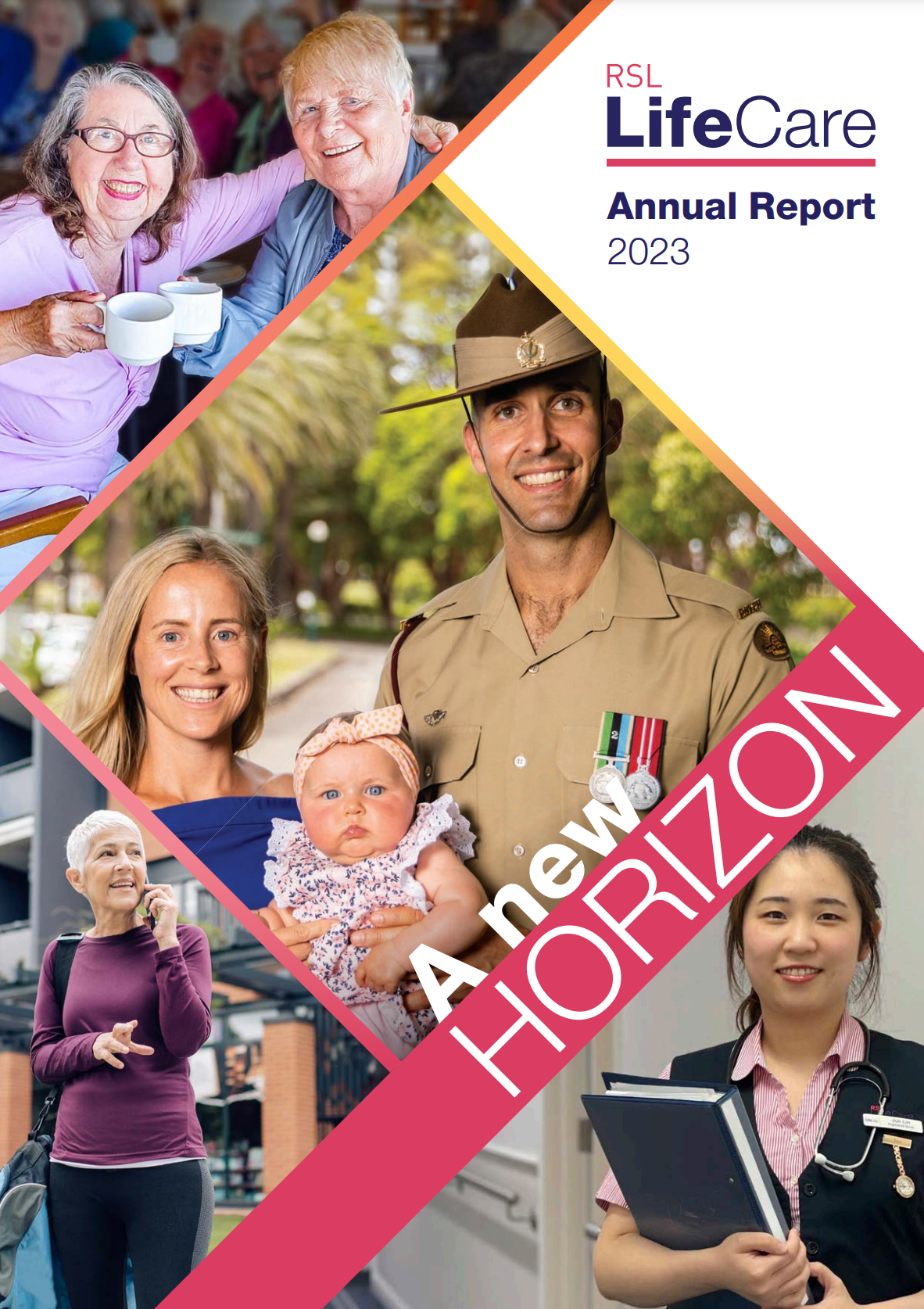
11 Dec 2023
RSL LifeCare Annual Report 2023
We are pleased to announce the 2023 RSL LifeCare Annual Report is now available to view via flipbook or...

27 Nov 2023
Positive impact of Intergenerational Relationships
The power of intergenerational relationships has been demonstrated on ABC’s Old People’s Home for Teenagers, featuring residents from RSL...
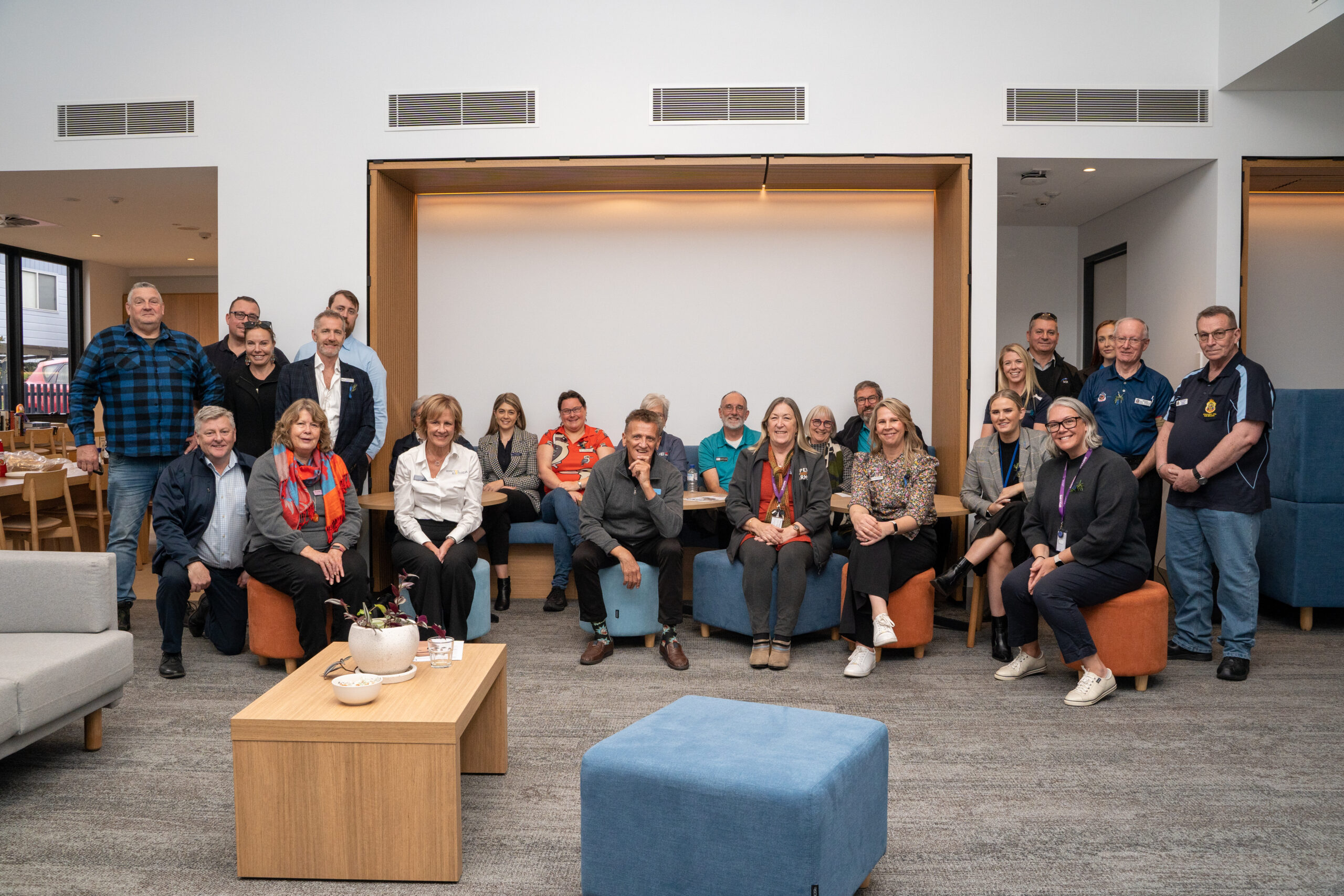
23 Nov 2023
RSL LifeCare secures $1.7 million funding to establish Central Coast Veteran and Family Hub and $243,000 for a centre at Bardia Barracks
RSL LifeCare has received $1.7 million in funding from the Albanese Government’s Veteran Wellbeing Grants One-Off Program to establish...
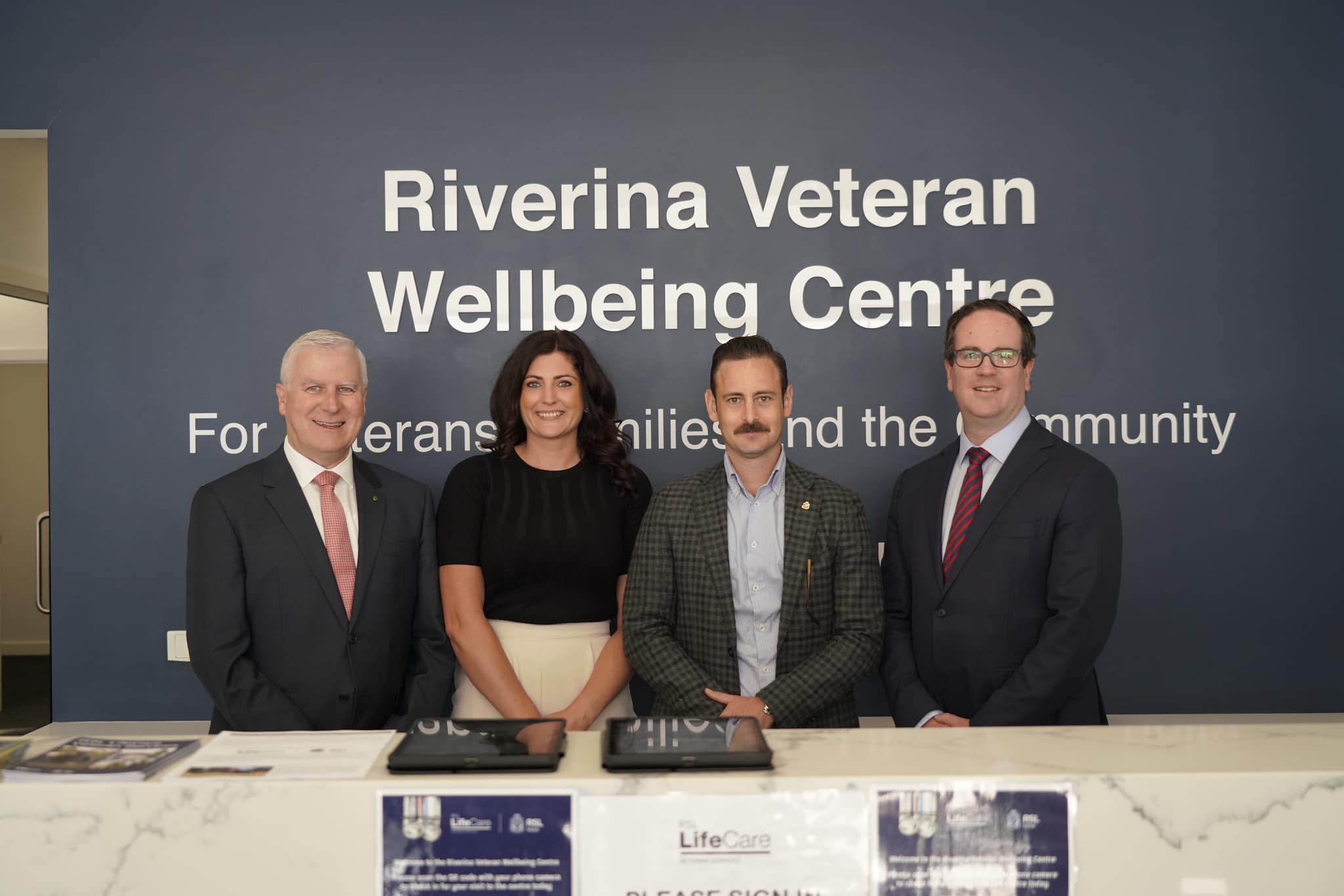
22 Nov 2023
RSL LifeCare awarded $520,341 in government funding to enhance Veteran wellbeing services in Riverina
RSL LifeCare has secured $520,341 in funding from the Albanese Government’s Veterans Wellbeing Grants One-Off program that will be...
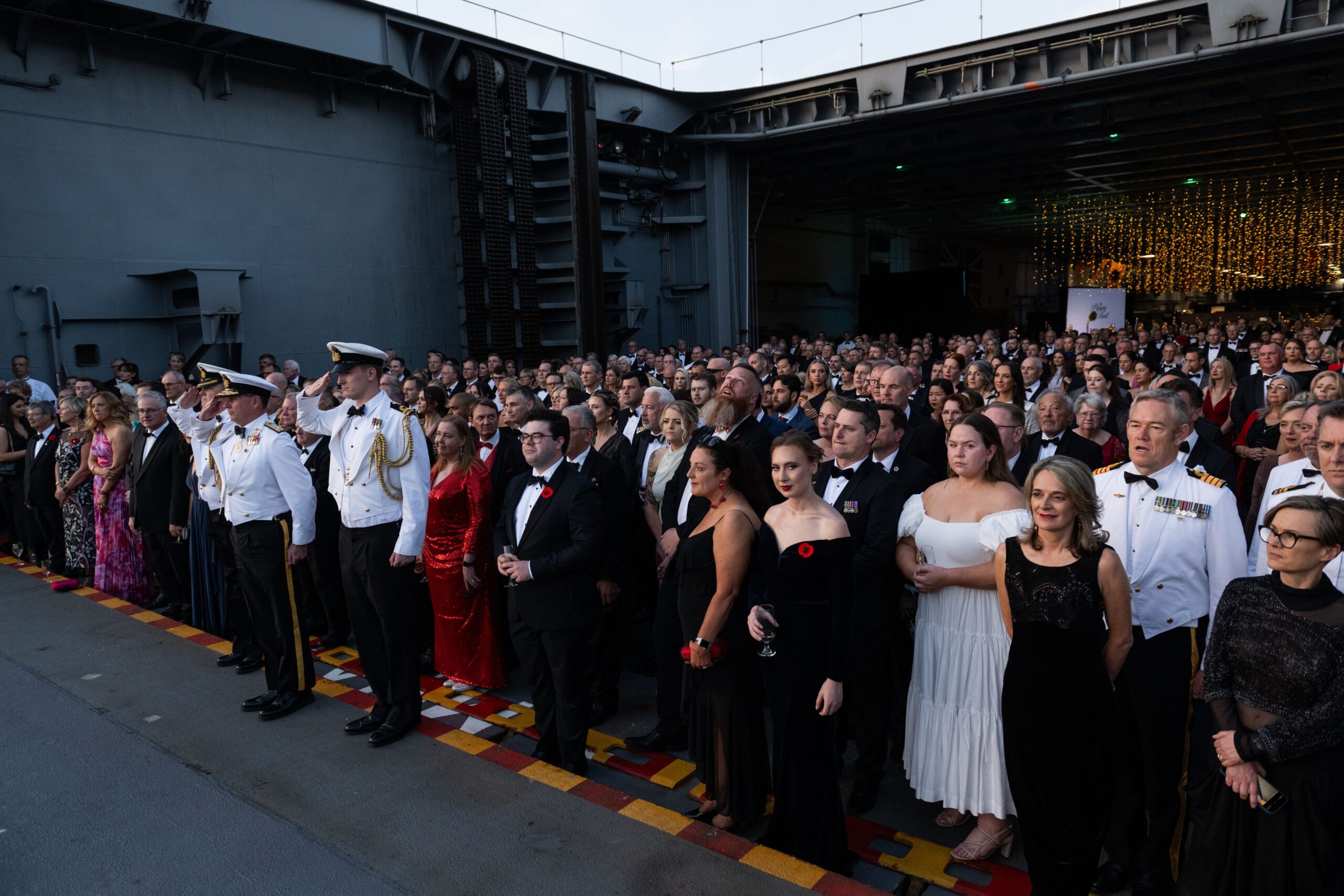
14 Nov 2023
RSL LifeCare hosts the inaugural Poppy Ball aboard HMAS Adelaide (III)
The inaugural Poppy Ball was held in Sydney on Saturday 11 November 2023 aboard the HMAS Adelaide (III). The...
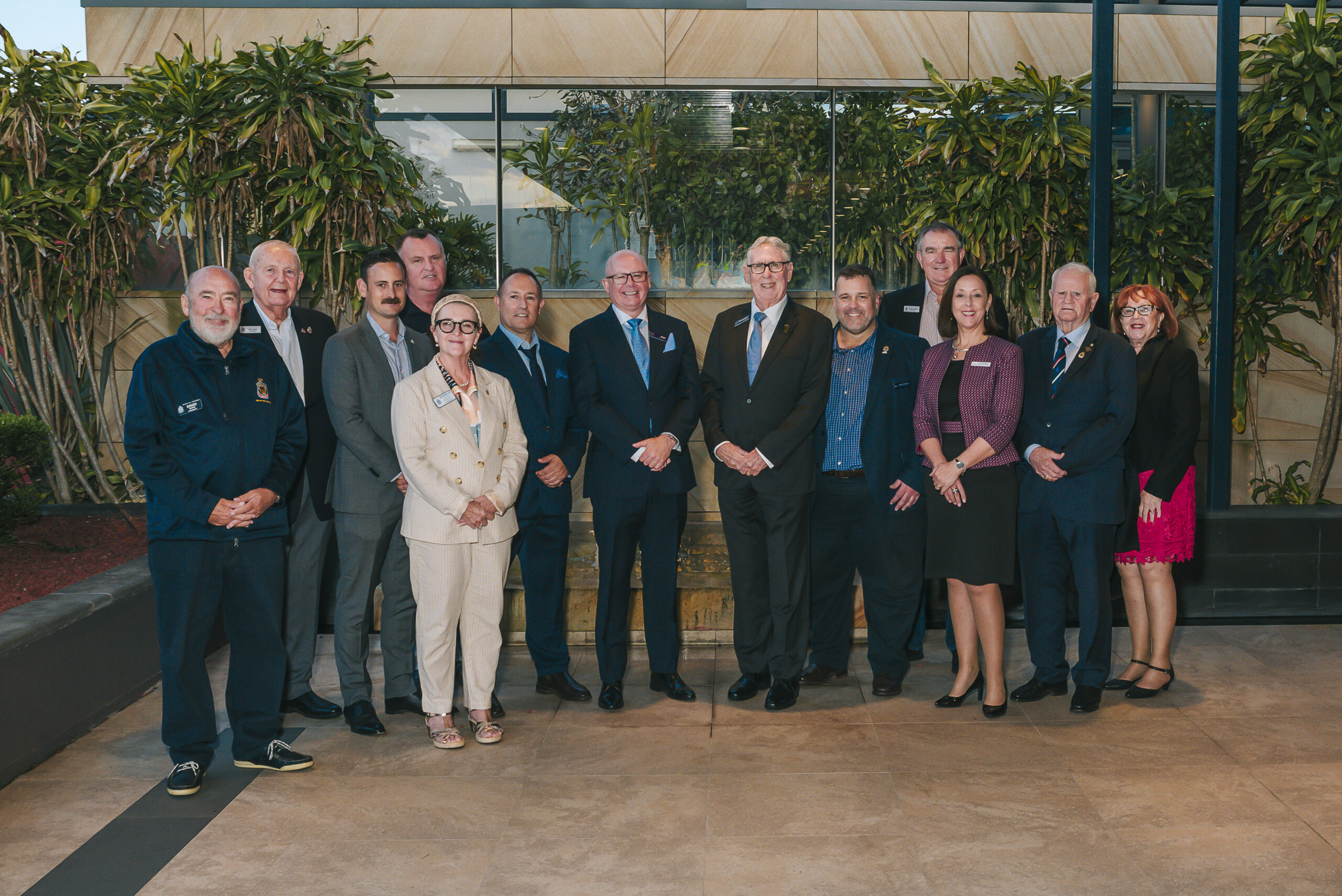
26 Sep 2023
RSL LifeCare announces plans for new Veteran Wellbeing Centre in Dee Why
RSL LifeCare is set to extend its crucial service delivery for local veterans and their families with the opening...
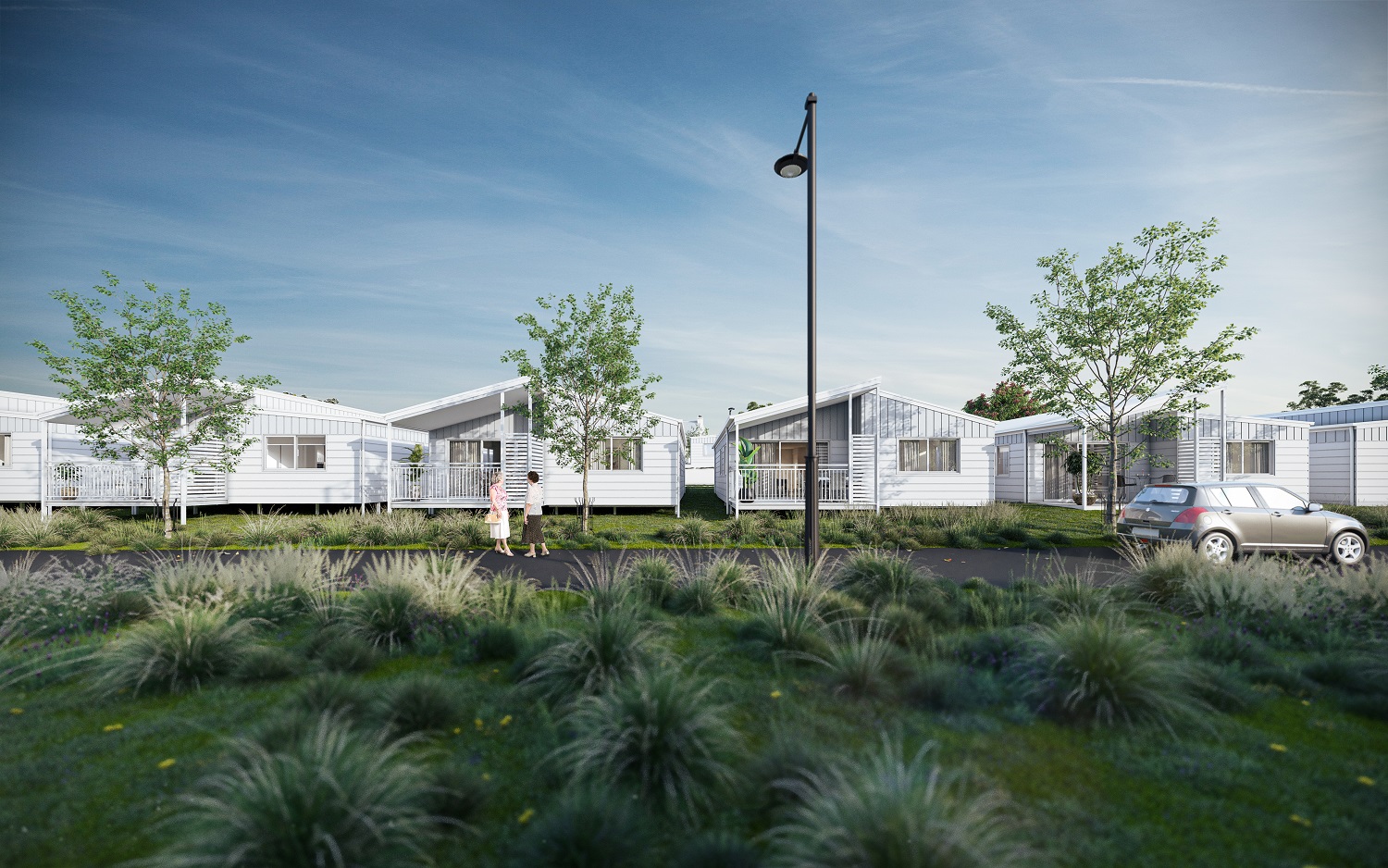
20 Sep 2023
RSL LifeCare Nowra Community Unveils Visionary Expansion, Elevating Retirement Living to New Heights
RSL LifeCare has today announced Stage 2 release of its Dumaresq Retirement Village at RSL LifeCare Nowra Community. The...
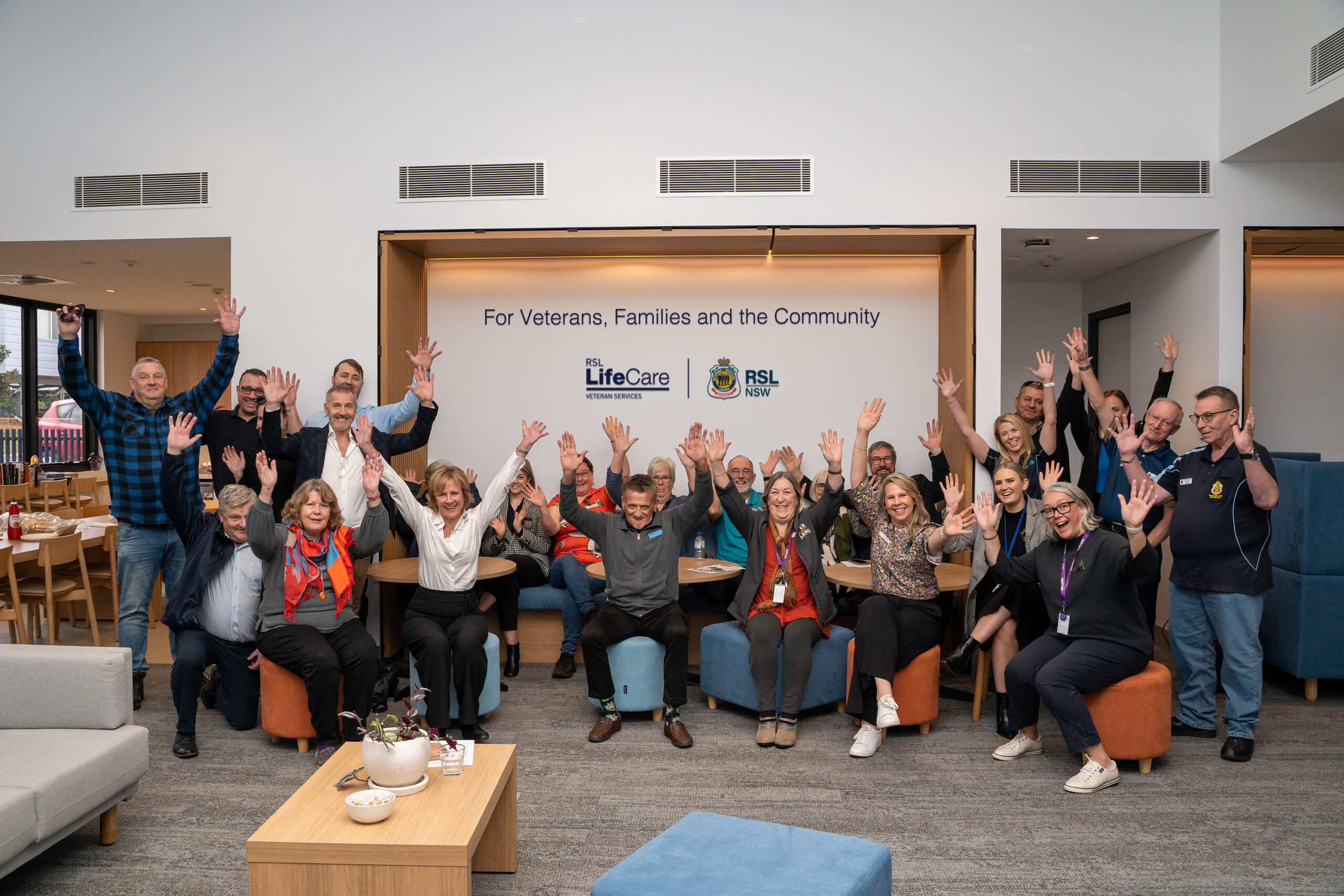
22 Aug 2023
Federal Government grant awarded to RSL LifeCare
RSL LifeCare has been awarded a $50,000 grant by the Australian Government to support the development of a business...
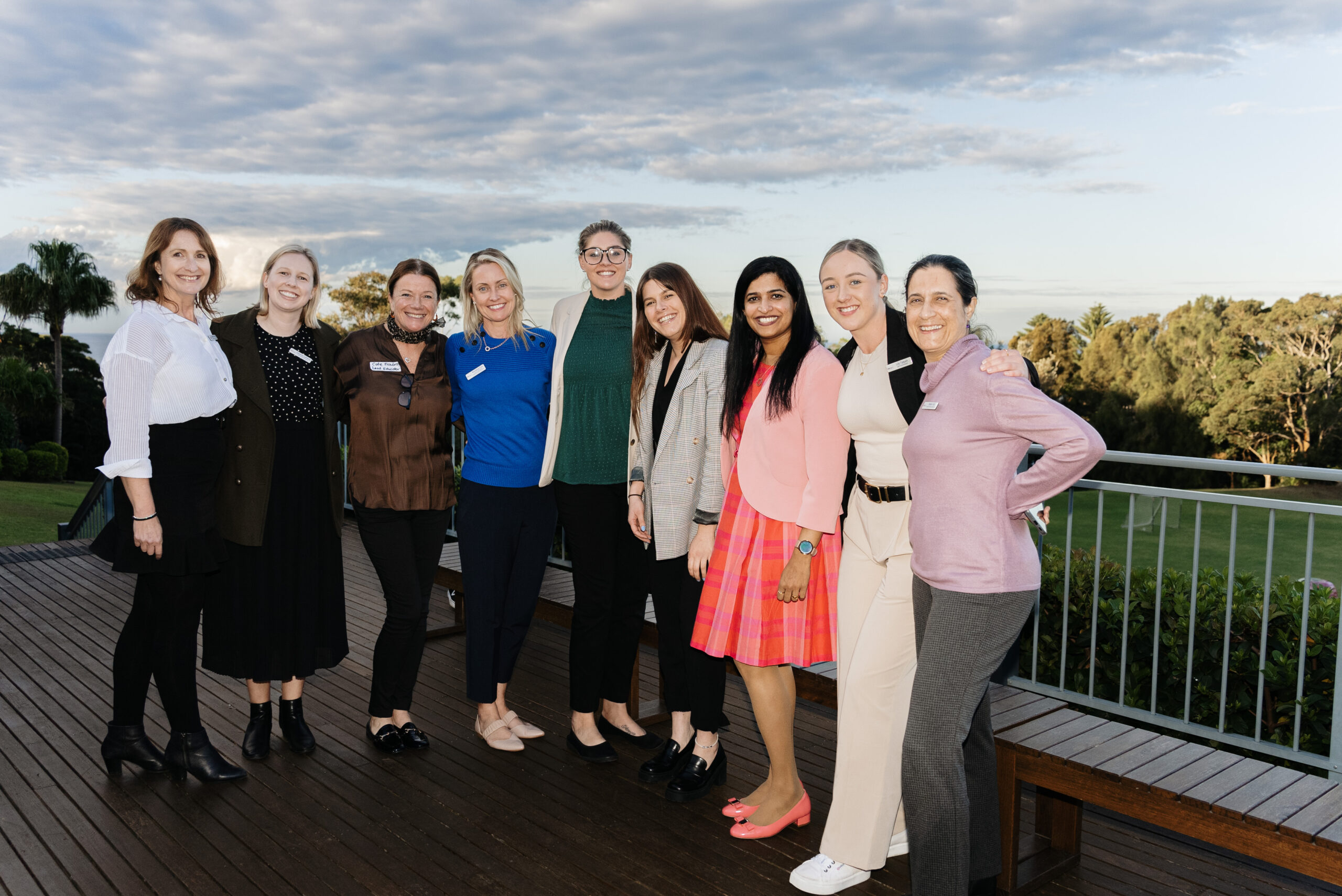
16 Aug 2023
RSL LifeCare a finalist in Best Graduate Development Program – Australian HR Awards 2023
August 2023 – RSL LifeCare’s Graduate Registered Nurse Program has been announced as a finalist in the Australian HR...
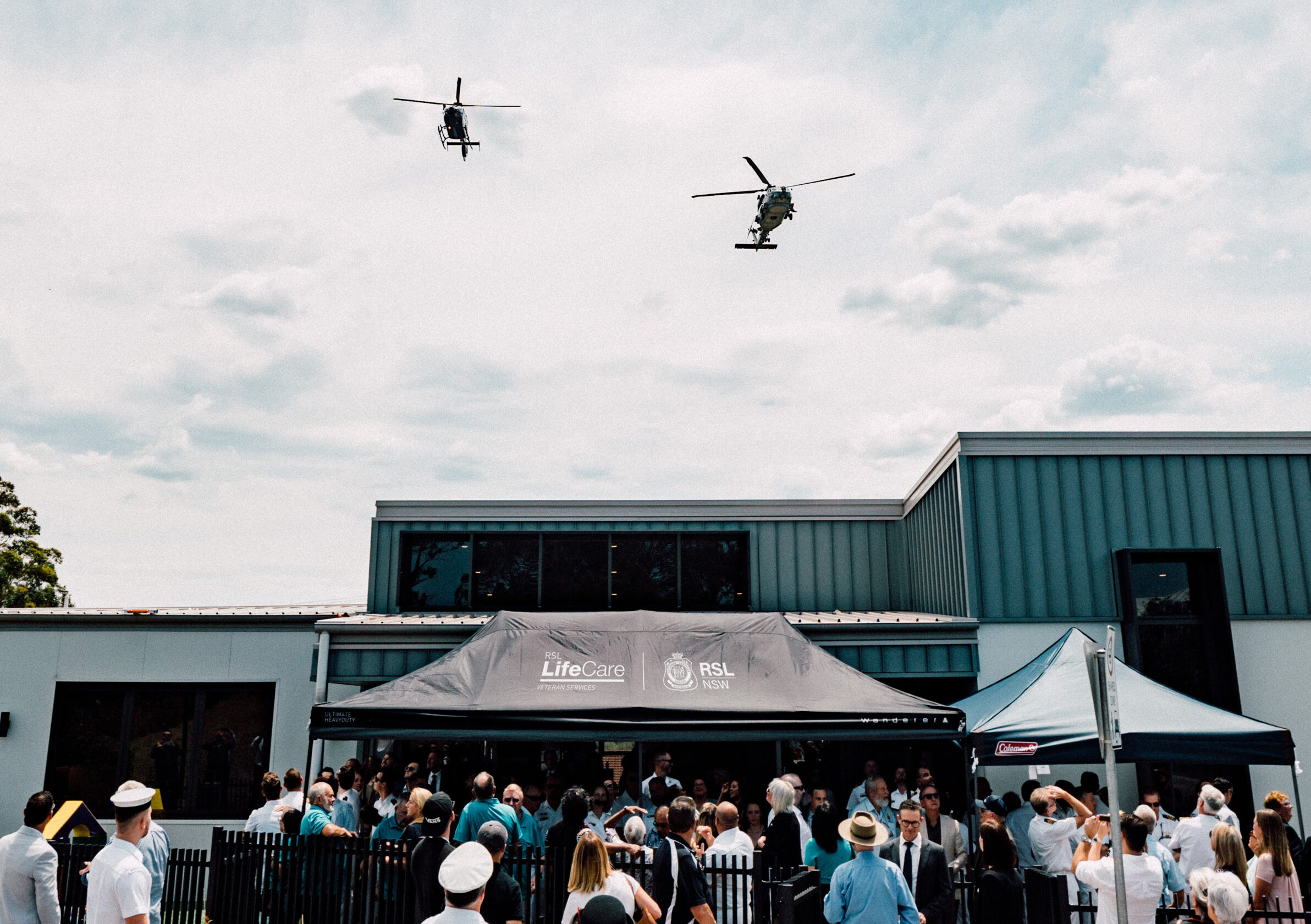
14 Aug 2023
RSL LifeCare successfully moves to the second stage in becoming the provider for a Veterans’ and Families’ Hub in both the Tweed-North Coast region and Queanbeyan.
RSL LifeCare has welcomed the opportunity by the Federal Government to submit a business case to deliver a Veterans’...

08 Mar 2023
Message from our CEO celebrating International Women’s Day
Good morning everyone, Today, on International Women’s Day, we take the opportunity to celebrate the contribution made by the...
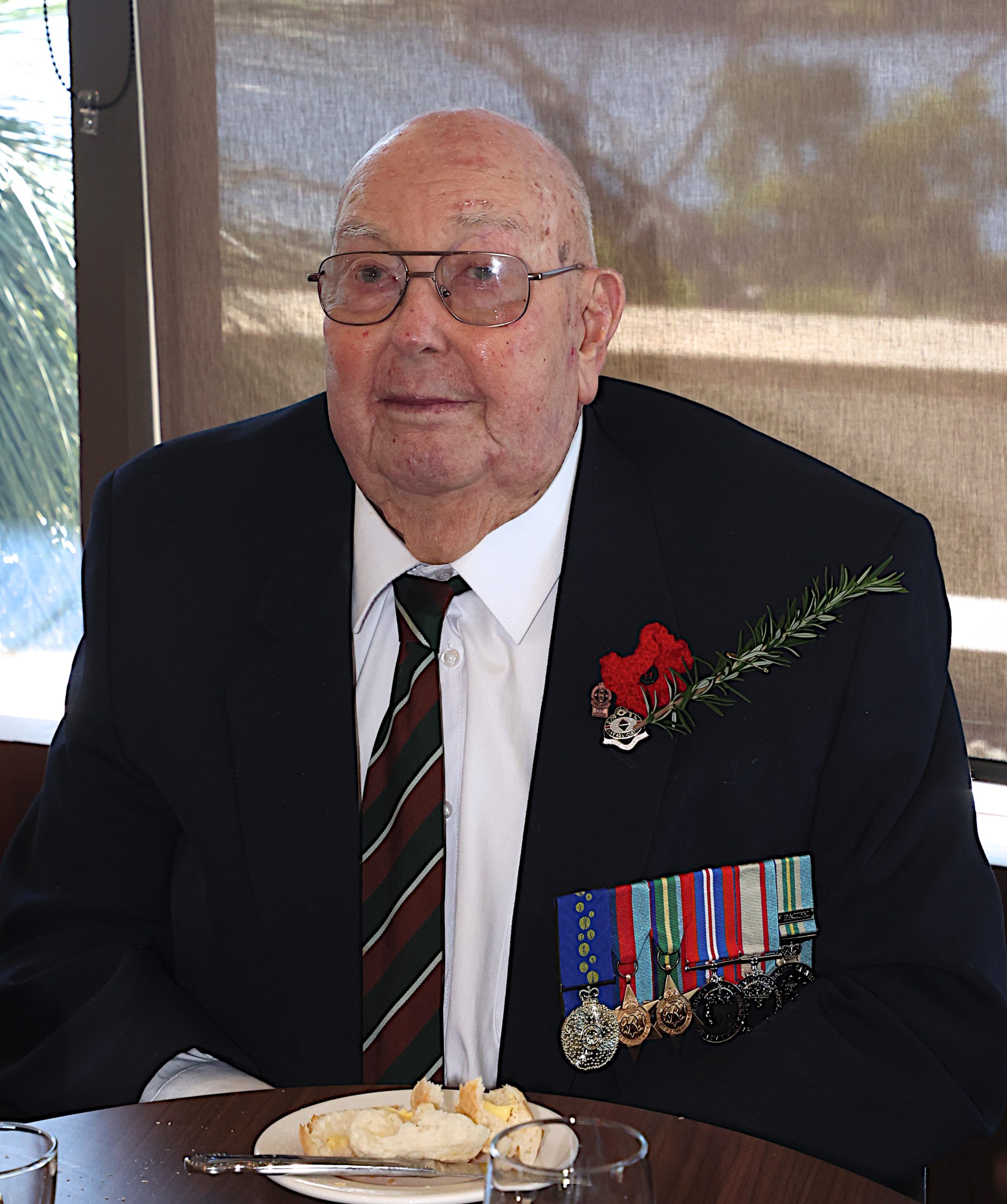
09 Jun 2022
Vale Walter Williams OAM
RSL LifeCare staff and residents alike have been deeply saddened to learn of the passing of long – time...
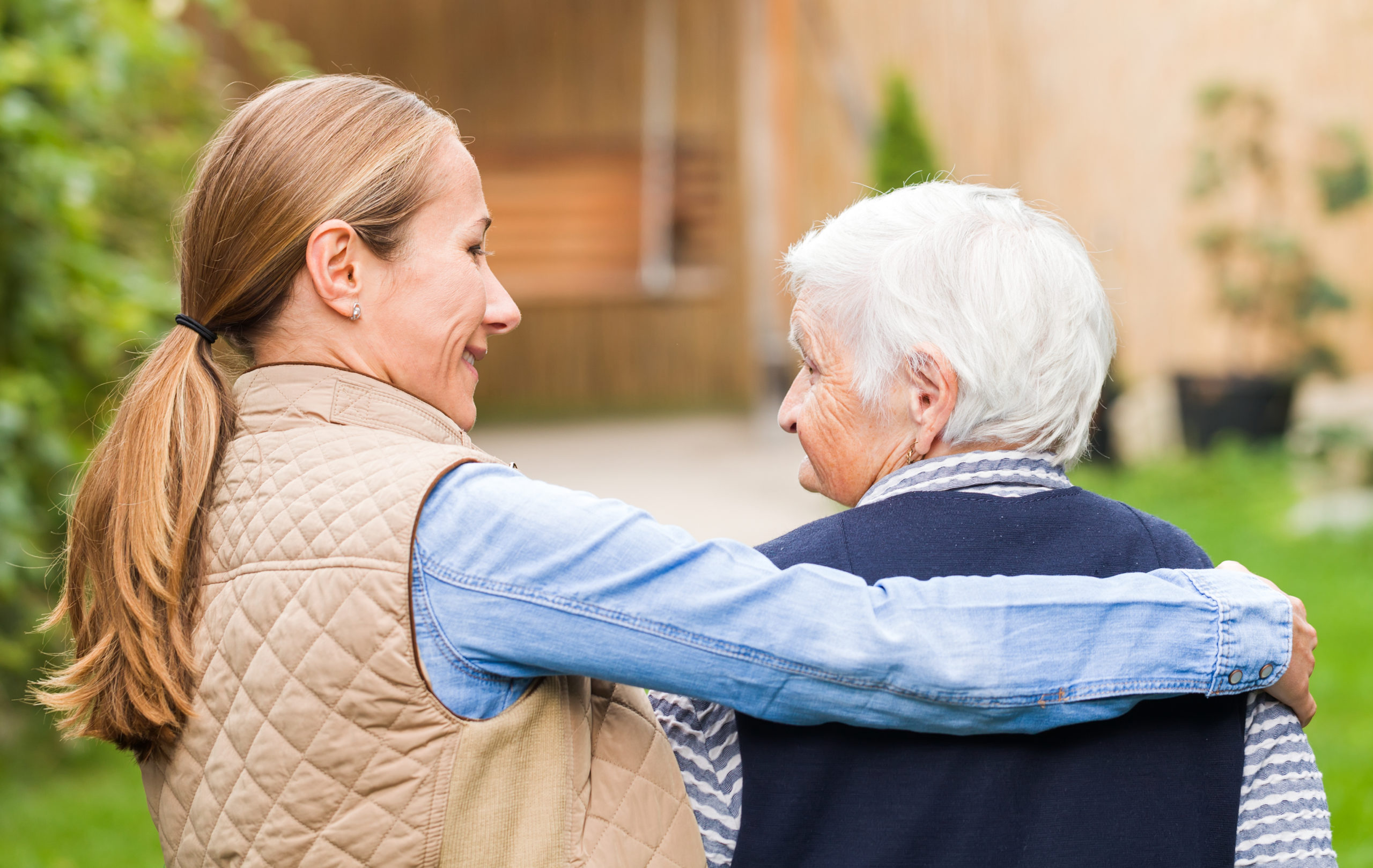
12 May 2022
Giving our nurses a voice to lead
Today, on International Nurses Day (IND) we shine a light on our nursing staff and their vital work. Our nurses...
08 Apr 2022
RSL LifeCare Veteran Services – one team supporting veterans and their families
The delivery of Veteran Services has been core to RSL LifeCare since its beginnings over 100 years ago. Now,...

20 Mar 2022
How the RSL Veterans’ Employment Program helps veterans find work
Transitioning to a different career is not always easy for veterans returning to civilian life. The RSL Veterans’ Employment...
24 Nov 2021
RSL LifeCare Annual Report 2021
I am pleased to advise that the 2021 RSL LifeCare Annual Report is now available. This annual report is...
06 Oct 2021
Rapid Antigen Test kits now available to Aged Care providers.
The Department of Health is offering Rapid Antigen Test kits to aged care providers across NSW in high-risk Local...

05 Aug 2021
Aged Care Employee Day is a day to thank everyone at RSL LifeCare.
7th August is Aged Care Employee Day. This is a day for us to thank every person who works...
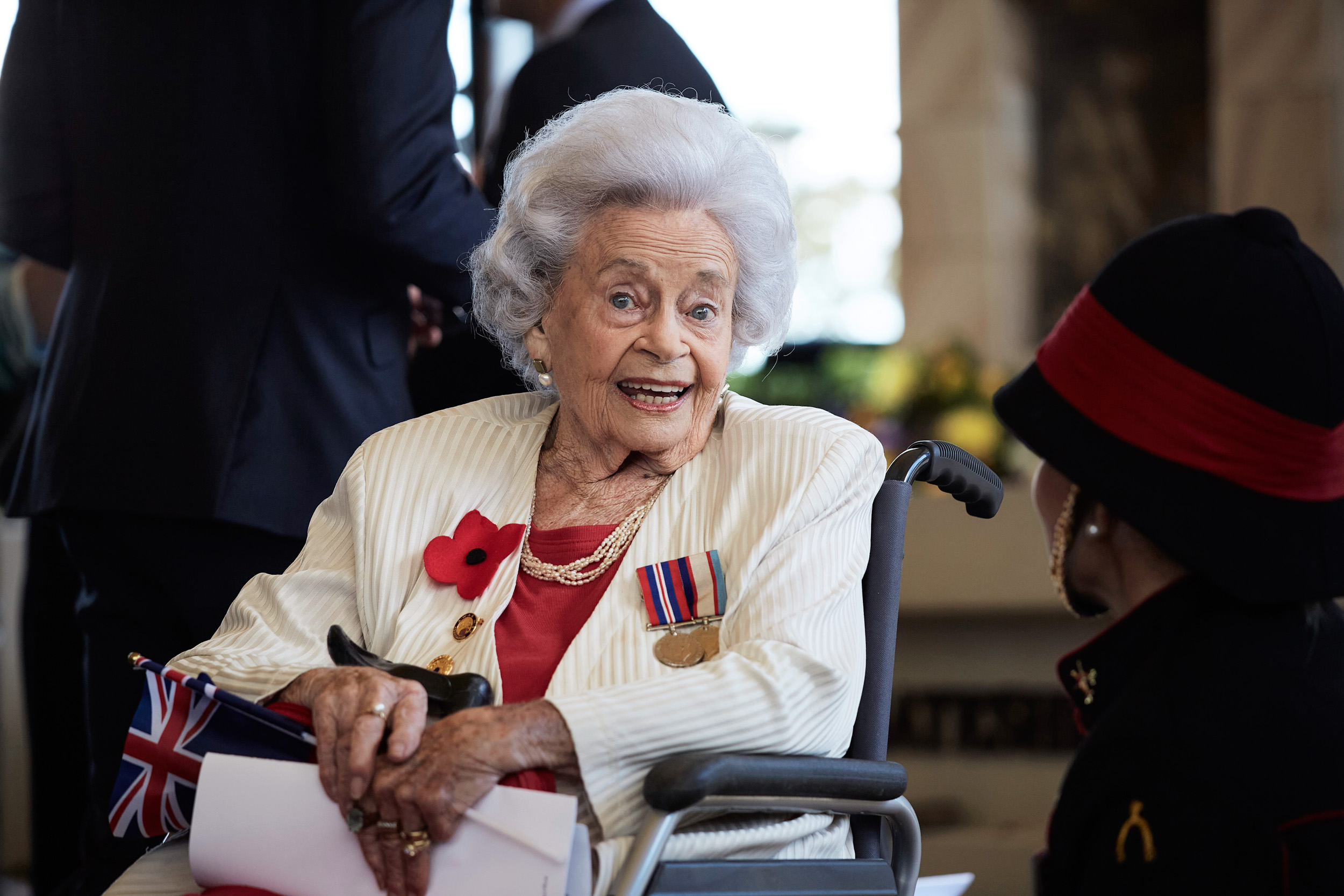
12 Jul 2021
World War 2 code breaker Marion Painter features in Sky News documentary
ANZAC Village, Narrabeen resident Marion Painter has featured in Sky News documentary, The Alliance, about her time as a...

29 Jun 2021
Aged care workers should be vaccinated on site.
AGED care provider, RSL LifeCare, have applauded the Australian Government for their decision to mandate COVID-19 vaccinations for staff...
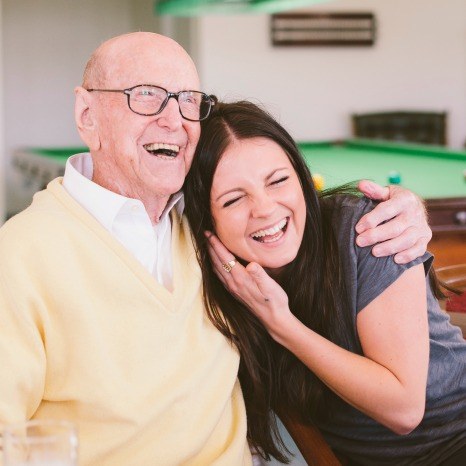
23 Mar 2016
Laughter is the best medicine
Laughter releases endorphins, giving us the ‘feel good factor’ Acts as aerobic exercise and is like ‘internal jogging’ Unleashes...
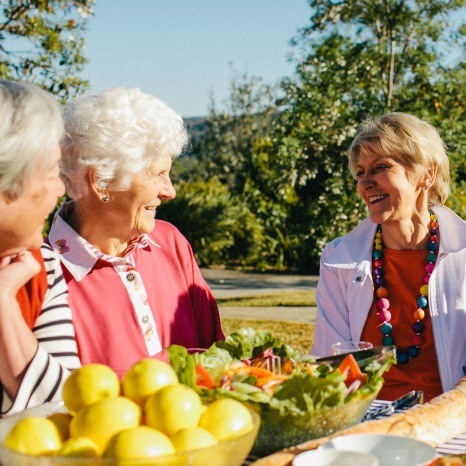
17 May 2016
A healthy diet for a healthy heart
Valentine’s Day saw people thinking of love and things of the heart and we thought it would be a...
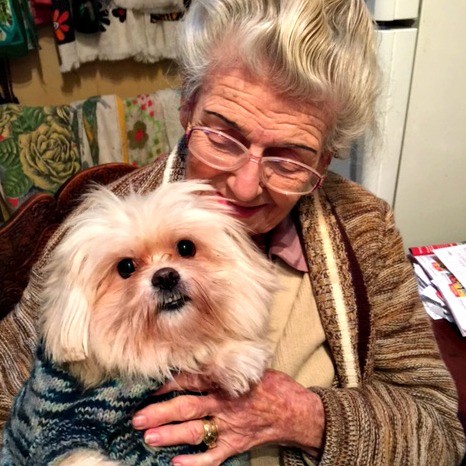
11 Oct 2016
Pets and Positive Ageing
Animals play an important role in our lives. As Community Staff, we are blessed to see the bonds that...
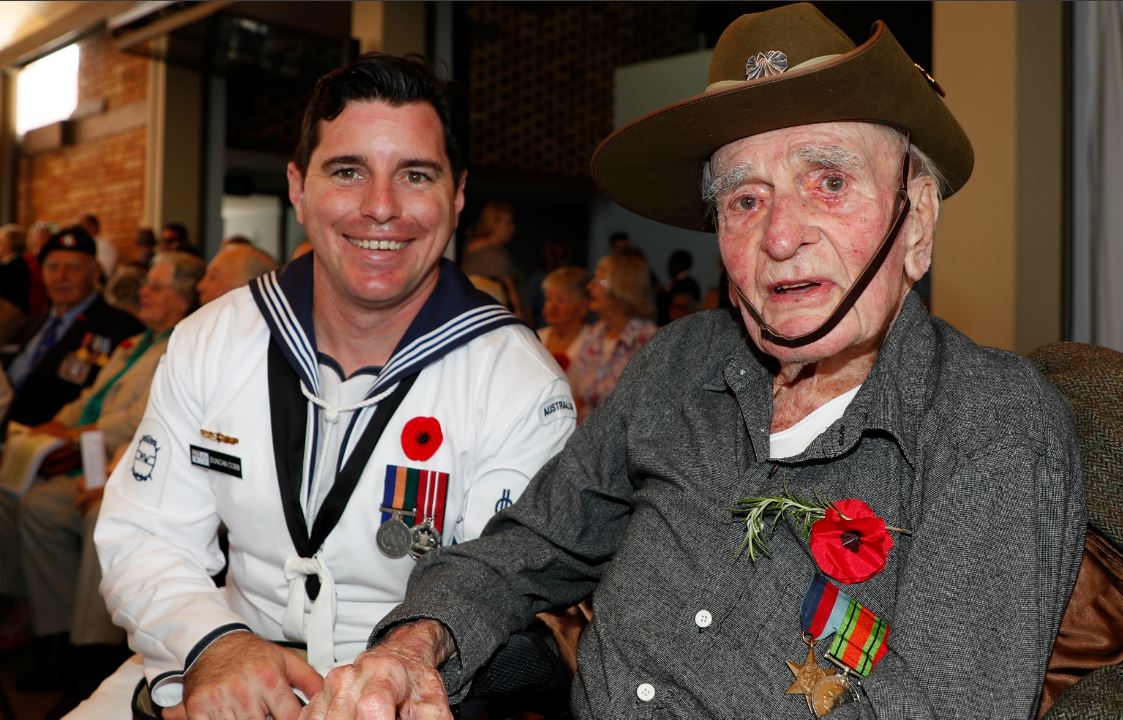
More from the blog
Latest News
Peter Fletcher’s Journey through WWII and Beyond
Peter Fletcher was born on March 18, 1924, in Brisbane, Queensland. At the age of 18, in 1942, he joined the Royal Australian Air Force...
Read moreCathy’s Tale of Work, Family, and Volunteering
"I was born on 19 December 1927. I'm 96 now. Originally from Tamworth, NSW. I began my career as a secretary, starting in Tamworth, then...
Read moreRSL LifeCare receives grant to develop a new Veterans’ and Families’ Hub in the Tweed-North Coast Region.
RSL LifeCare, in partnership with RSL NSW and sub-Branches, will today receive a $5.445 million grant from the Federal Government to develop a Veterans’ and...
Read moreRSL LifeCare receives multi-million dollar grant to develop a new Veterans’ and Families’ Hub in the Hunter Region’
RSL LifeCare, in partnership with RSL NSW and sub-Branches, will today receive a $5.445 million grant from the Federal Government to develop a Veterans’ and...
Read moreRSL LifeCare receives $5.445 million in funding to provide holistic support for veterans from Hawkesbury to South Western Sydney
RSL LifeCare, in partnership with RSL NSW and sub-Branches, will today receive a $5.445 million grant from the Federal Government to develop a Veterans’ and...
Read moreThe Incredible Journey of John Currie: A Life Anchored in Service
"I was born in Western Australia as an only child to a family with proud Scottish heritage. Growing up, my roots lay in the Methodist church,...
Read moreEmbracing Life’s Symphony: Grace Lane’s Remarkable Journey
"Life at RSL LifeCare has been a surprising adventure for me. When I first arrived, my plan was simple - to do absolutely nothing. Little...
Read morePeter Boughton: A Life of Service and Treasured Memories
Peter Boughton was born on February 18, 1951, at the Sydney Women's Hospital. His early years were filled with beautiful memories, especially his close bond...
Read moreRSL LifeCare receives $5.445 million in funding to deliver a new Veteran Wellbeing Hub in Queanbeyan
RSL LifeCare, in partnership with RSL NSW, will receive a $5.445 million grant from the Federal Government to develop a Veterans’ and Families’ Hub in...
Read moreJacquie’s 16 Years of Heartfelt Volunteering at RSL LifeCare
"I'm Jacquie, short for Jacquelyn Finley. I'm 76 years old, and I've been a volunteer at RSL LifeCare John Goodlet Manor for nearly 16 years now. You...
Read moreMargaret’s Journey: From Humble Beginnings to Cherished Community Life
"I was born in the lively neighbourhood of Willoughby and soon moved to Balgowlah Heights at the age of five. Growing up in a bustling...
Read moreJoan’s Creative Pursuits: Knitting, Puzzles, and Cherished Moments at RSL LifeCare
Many residents at RSL LifeCare love to participate in a variety of hobbies that keep their minds and hearts engaged. One such resident is Joan Herringe from RSL LifeCare Connie Fall. One...
Read more
